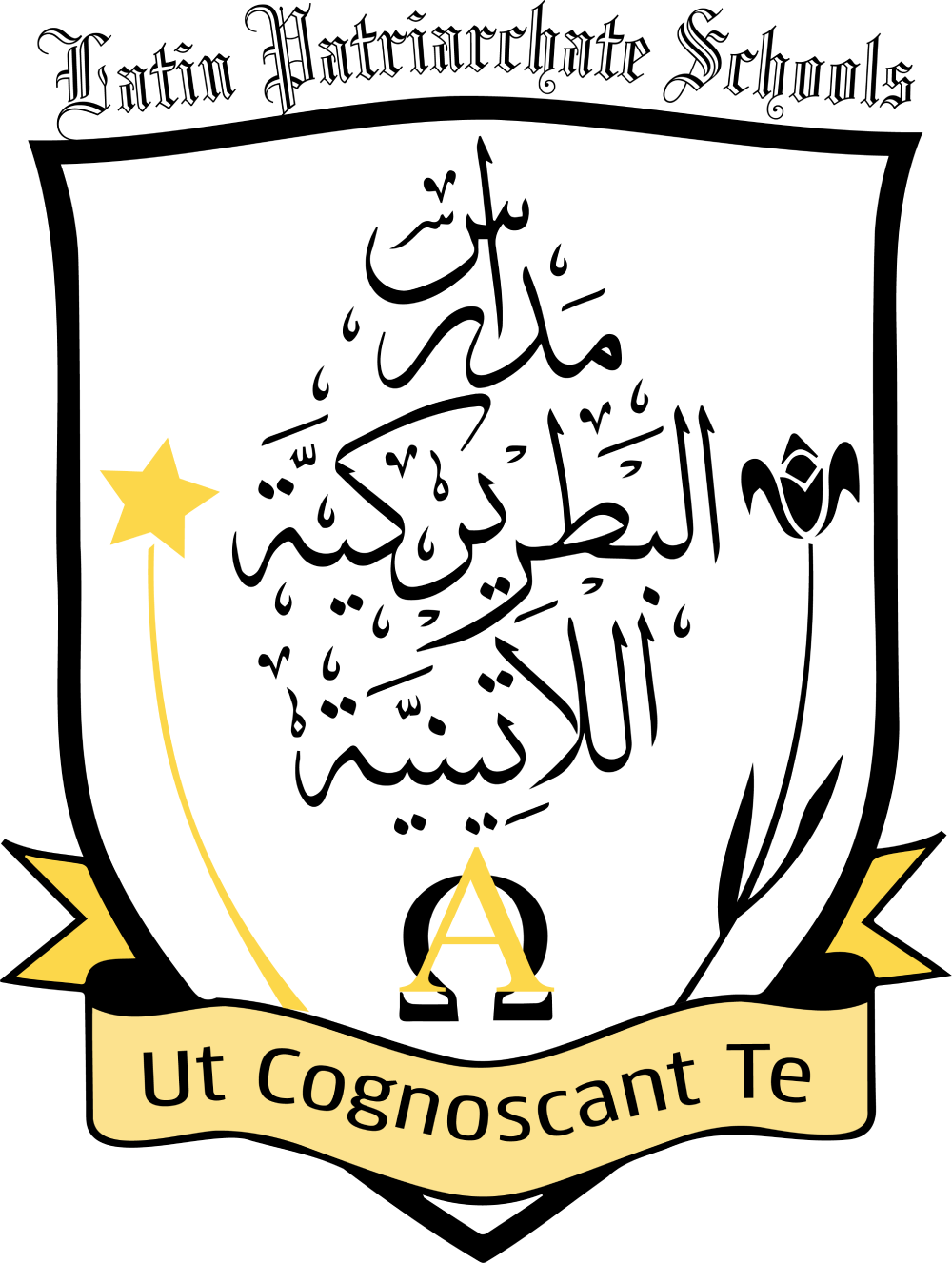
Educational Programs
Academic Program
As part of the Latin Patriarchate Schools' continuous efforts to enhance professional and leadership competencies, a strategic agreement was signed with the Queen Rania Teacher Academy. The agreement was signed by the General Director of the Latin Patriarchate Schools, Father Dr. Firas Nasrawin, in the presence of Ms. Samar Samirat, Executive Director, Ms. Atheer Al-Samardali, Director of Human Resources, Dr. Osama Obeidat, CEO of the Academy, Ms. Rula Said, Director of Education, and Ms. Zein Al-Fawwaz, Director of Communications and Media.
This agreement aims to empower school principals with effective leadership skills to ensure more efficient educational administration and contribute to delivering quality education that promotes sustainable development in educational institutions. The training focuses on elevating educational leadership through intensive programs that develop planning and educational management skills,while enhancing the ability to make well-informed decisions that serve the best interests of both students and schools.
This initiative falls within a comprehensive vision adopted by the Latin Patriarchate Schools to raise the quality of education and leadership, and to create a sustainable, supportive, and flexible educational environment that meets the evolving demands of the educational community in light of the rapid and growing challenges in this sector.

BTEC Program
What is BTEC?
The BTEC program is an internationally recognized educational framework accredited by the British Pearson organization. It is based on skills-based and practical learning, enabling students to gain hands-on knowledge through real-world projects and experiences. Unlike traditional academic models, this program promotes competence, creativity, and career readiness. BTEC is approved in over seventy countries and accepted by more than 738 universities worldwide. In Jordan, the Ministry of Education has adopted this model within vocational pathways, aiming to prepare a generation equipped with the academic knowledge, technical skills, and personal attributes required to enter the workforce with confidence and competence.
Program Structure
The BTEC vocational program spans three years, from Grade 10 to Grade 12. Students study shared cultural subjects such as Arabic Language, English Language, and Jordanian History, in addition to intensive practical training.
Grade 10
Students complete 480 hours of academic and applied training.
Grades 11 and 12
Students complete an additional 720 hours of theoretical and practical education.
Available Specializations
The program includes a range of vital and in-demand specializations in the labor market, including:
These specializations have been carefully selected to align with the needs of the Jordanian labor market, ensuring graduates are well-prepared for immediate employment.

Post-Graduation Opportunities
BTEC graduates enjoy broad prospects, whether in higher education or the job market. They can enroll in leading academic institutions without the need for the Tawjihi certificate, such as:
- Al Hussein Technical University (Dabouq)
- Luminus Technical University College
- Luminus Technical University College Al Khawarizmi College
They may also pursue their studies at international universities that recognize the BTEC system or enter the labor market directly or even launch their own projects, thanks to their unique skills and hands-on field experience.
A Strategic National Transformation
This shift in vocational education is a core component of the Economic Modernization Vision and the National Strategy for Human Resources Development. The Ministry of Education's commitment is evident through several key initiatives, most notably:
- Extending the vocational education period to three years instead of two.
- Increasing the number of vocational streams to ten by 2025.
- Expanding enrollment in vocational programs.
- Increasing practical training hours and emphasizing soft skills development.
Why is this program important?
The BTEC system represents a fundamental shift in the philosophy of education. It prepares students for real life, not just exams, and contributes to:
